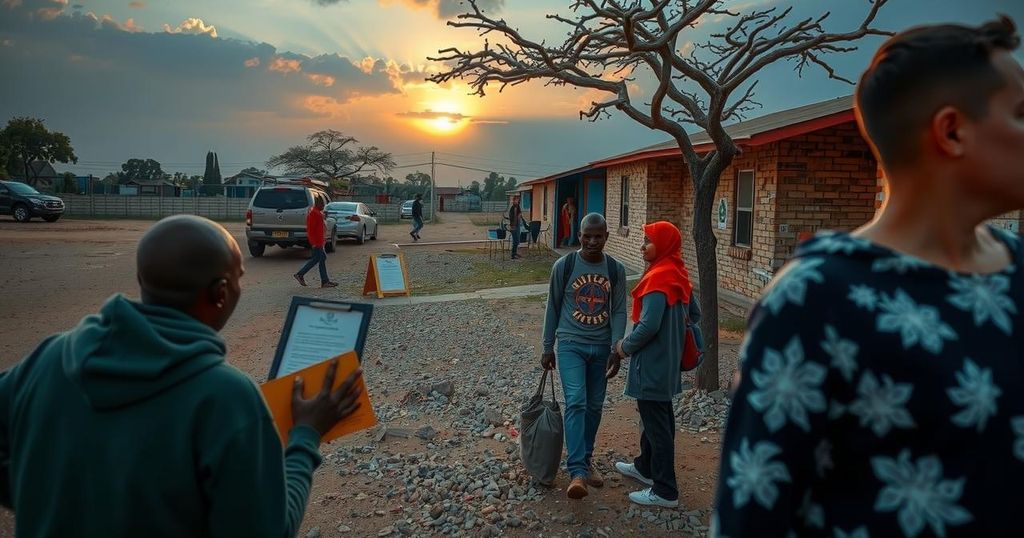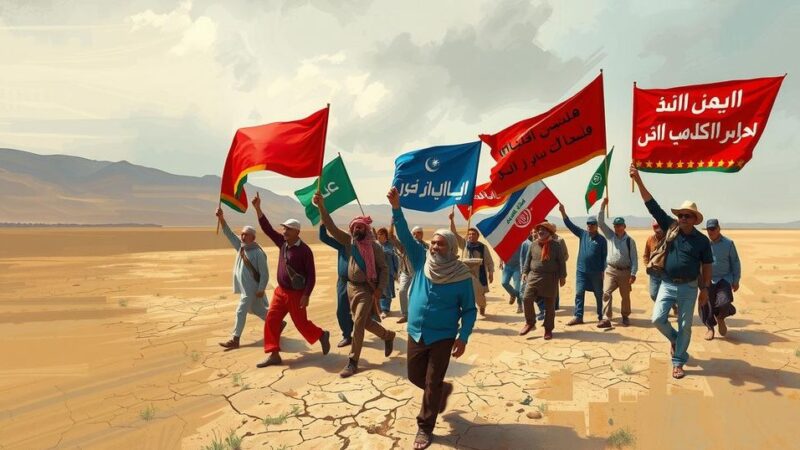Duma Boko, the new President of Zimbabwe, is welcoming undocumented Zimbabweans in Botswana by proposing temporary work and residence permits. He believes this initiative will help fill essential jobs often avoided by locals and facilitate skill-sharing between the two nations, promoting economic recovery and better integration for migrants.
Duma Boko, the newly inaugurated President of Zimbabwe, has expressed a willingness to welcome undocumented Zimbabweans currently residing in Botswana by offering them temporary work and residence permits. During an interview prior to his inauguration, he articulated the potential economic benefits that these individuals could bring by filling roles that are often unattractive to local citizens. This initiative marks a significant change in policy as Botswana has traditionally experienced economic strife due to the influx of Zimbabweans escaping their homeland’s economic turmoil. President Boko emphasized the necessity for a structured approach to manage the movement of Zimbabweans into Botswana, particularly since great numbers enter the country through a long, porous border. He noted that the current undocumented status limits access to essential services and often leads to criminal activity, which fosters resentment within communities. He seeks to rectify this situation by instituting a formalised system that acknowledges the presence of Zimbabweans in Botswana. Although the exact number of Zimbabweans living in Botswana remains unclear, past statistics suggest they constitute a substantial majority of irregular migrants, highlighting their significant presence in the labor market. President Boko pointed out that Zimbabwean workers frequently occupy roles that are essential yet overlooked by local citizens, thus serving a crucial function in the economic fabric of Botswana. Moreover, the President’s initiatives include promoting skill-sharing between Zimbabweans and local residents, particularly in fields such as plumbing and welding, where Zimbabweans have been found to possess considerable expertise. This exchange of knowledge is intended to help develop local skills while allowing for the legal employment of those from Zimbabwe. Boko’s approach also seeks to mitigate concerns raised last year regarding the potential replacement of passports with identity cards for travelers, which was perceived as a precursor to increased immigration from Zimbabwe. Nevertheless, the overarching aim remains to cultivate a manageable and beneficial relationship between the two nations’ citizens, allowing them to coexist and contribute productively to each other’s economies.
The relationship between Botswana and Zimbabwe has historically been shaped by economic migration due to the economic collapse in Zimbabwe, which prompted many citizens to seek better opportunities abroad. As the second-largest host of Zimbabweans, Botswana has grappled with challenges related to undocumented immigration, including deportations and socio-economic tensions. The recent political shift in Zimbabwe with President Duma Boko’s election signifies a potential realignment in migration policy, aiming to acknowledge and integrate Zimbabwean migrants into the Botswanan economy.
President Duma Boko’s recent declarations regarding the welcomed status of undocumented Zimbabweans mark a pivotal shift in migration policy toward fostering economic integration. By proposing legal employment and residence permits, he aims to formalize their status while emphasizing the necessity of skills transfer between both nations. This approach not only seeks to benefit the economy but also to reduce social tensions associated with undocumented migration, laying a foundation for constructive cross-border relations.
Original Source: www.theheritagetimes.com






